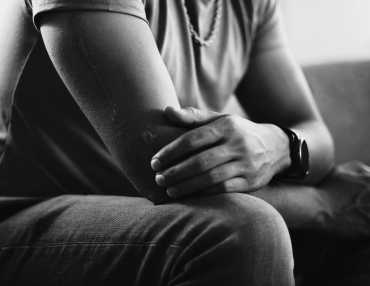Psychological injuries can be just as debilitating as physical injuries, yet they often go unrecognized and untreated. At Watchmaker Injury Law, we understand the profound impact that psychological injuries can have on individuals and their families. This comprehensive guide aims to provide insight into the causes, signs, and symptoms of psychological injuries, helping you to recognize them early and seek appropriate help.
What is a Psychological Injury?
A psychological injury, also known as a mental injury or emotional trauma, refers to any mental or emotional harm that significantly impacts a person’s well-being and daily functioning. Unlike physical injuries, psychological injuries are not visible but can be equally, if not more, damaging.
Common Causes of Psychological Injuries
Psychological injuries can stem from a variety of sources, including:
- Workplace Stress: High-pressure work environments, long hours, and unreasonable demands can lead to conditions such as burnout, anxiety, and depression.
- Traumatic Events: Experiencing or witnessing traumatic events such as accidents, assaults, or natural disasters can result in conditions like post-traumatic stress disorder (PTSD).
- Bullying and Harassment: Being subjected to bullying or harassment, whether at work, school, or online, can cause significant emotional distress.
- Personal Loss: The loss of a loved one, a job, or a significant relationship can lead to grief, depression, and anxiety.
- Chronic Physical Illness: Living with a chronic physical illness or disability can also lead to psychological injuries due to the ongoing stress and limitations imposed by the condition.
Recognizing the Signs and Symptoms
Psychological injuries manifest through a variety of symptoms, which can be broadly categorized into emotional, cognitive, physical, and behavioral signs.
Emotional Signs
- Persistent Sadness or Depression: Feeling a pervasive sense of sadness, hopelessness, or emptiness can indicate a psychological injury.
- Anxiety and Fear: Experiencing excessive worry, fear, or panic attacks are common symptoms of anxiety disorders.
- Anger and Irritability: Increased irritability, frustration, and anger, often out of proportion to the situation, can be a sign of underlying emotional distress.
- Mood Swings: Rapid and severe changes in mood, ranging from extreme happiness to deep sadness, can indicate emotional instability.
Cognitive Signs
- Difficulty Concentrating: Struggling to focus, remember details, or make decisions can be indicative of cognitive impairment due to psychological injury.
- Negative Thought Patterns: Persistent negative thoughts about oneself, others, or the future are common in conditions like depression and anxiety.
- Intrusive Thoughts: Unwanted, distressing thoughts or memories, particularly related to a traumatic event, can be a sign of PTSD.
- Disorientation and Confusion: Feeling disoriented, confused, or disconnected from reality can occur in severe cases of psychological trauma.
Physical Signs
- Sleep Disturbances: Insomnia, nightmares, or excessive sleeping can be symptoms of psychological injuries.
- Changes in Appetite: Significant changes in eating habits, leading to weight loss or gain, can indicate emotional distress.
- Chronic Pain: Unexplained physical pain, such as headaches or stomachaches, can be a manifestation of psychological stress.
- Fatigue and Low Energy: Persistent feelings of tiredness and lack of energy, even after adequate rest, can be a sign of depression or anxiety.
Behavioral Signs
- Withdrawal from Activities: Losing interest in activities that were once enjoyable and withdrawing from social interactions are common signs of depression.
- Avoidance Behaviors: Avoiding places, people, or activities that trigger distressing memories or emotions can indicate PTSD or anxiety.
- Substance Abuse: Using alcohol, drugs, or other substances to cope with emotional pain is a dangerous but common response to psychological injuries.
- Self-Harm and Suicidal Thoughts: Engaging in self-harm or having thoughts of suicide are severe symptoms that require immediate attention and intervention.
The Importance of Early Recognition and Intervention
Recognizing the signs and symptoms of psychological injuries early is crucial for effective intervention and recovery. Psychological injuries can worsen over time if left untreated, leading to more severe mental health conditions and impacting all areas of life, including work, relationships, and physical health.
Seeking Help for Psychological Injuries
If you or someone you know is exhibiting signs of a psychological injury, it is important to seek help from a qualified mental health professional. Treatment options may include:
- Therapy and Counseling: Talking to a therapist or counselor can help individuals process their emotions, develop coping strategies, and address underlying issues.
- Medication: In some cases, medication may be prescribed to help manage symptoms of anxiety, depression, or other mental health conditions.
- Support Groups: Joining a support group can provide a sense of community and shared understanding, helping individuals feel less isolated in their experiences.
- Self-Care Practices: Engaging in self-care activities such as exercise, mindfulness, and relaxation techniques can help manage stress and improve overall well-being.
Legal Rights and Compensation for Psychological Injuries
If a psychological injury has resulted from someone else’s negligence or misconduct, you may be entitled to compensation. Understanding your legal rights and the process of filing a claim is crucial for obtaining the justice and support you deserve. Key steps in pursuing a legal claim for psychological injuries include:
- Consulting with a Personal Injury Lawyer: Seeking legal advice from an experienced personal injury lawyer is the first step in understanding your rights and options. A lawyer can help evaluate the merits of your case and guide you through the legal process.
- Gathering Evidence: Collecting evidence to support your claim is essential. This includes medical records, witness statements, and documentation of any related expenses or lost wages.
- Filing a Claim: Your lawyer will assist in filing a personal injury claim against the responsible party. This involves drafting legal documents, negotiating with insurance companies, and representing you in court if necessary.
- Pursuing Compensation: Compensation for psychological injuries may cover medical expenses, lost wages, pain and suffering, and other related costs. Your lawyer will work to ensure you receive fair and just compensation for your injuries.
Conclusion
Recognizing psychological injuries is the first step towards recovery and obtaining the support you need. At Watchmaker Injury Law, we are dedicated to helping our clients navigate the complexities of psychological injury cases and secure the compensation they deserve. If you or a loved one is suffering from a psychological injury, don’t hesitate to reach out to our experienced legal team for a free consultation and personalized support. Your journey to justice and healing starts here.
By understanding the causes, signs, and symptoms of psychological injuries, you can take proactive steps to seek help and protect your rights. Remember, you don’t have to face this journey alone—Watchmaker Injury Law is here to stand by your side every step of the way.



